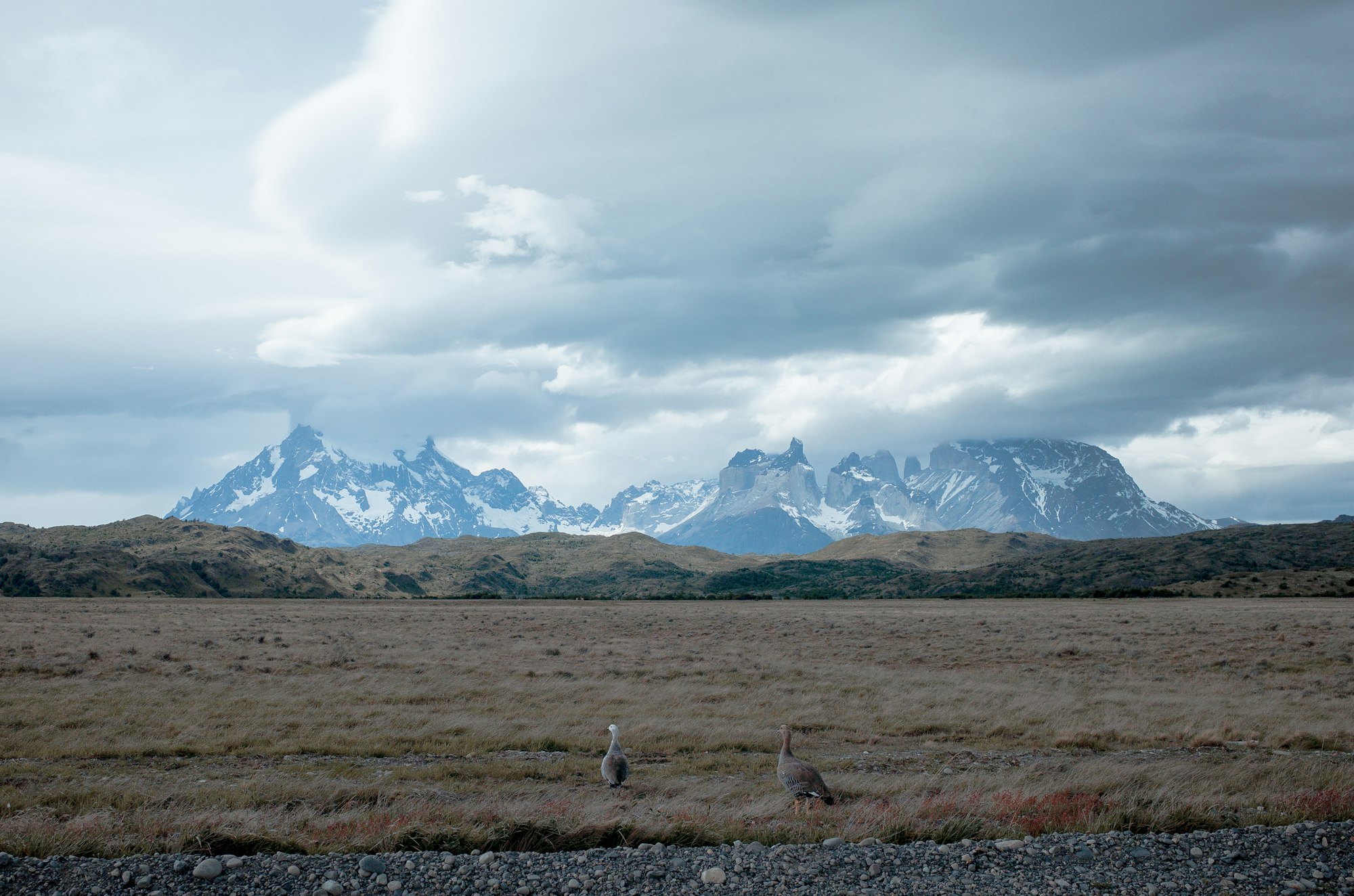Once in a great while there comes a person so perpendicular to what typifies a field that they might upend it.
Yvon Chouinard is first and foremost an adventurer. He wasn't great in school, but he was great at falconry, which led him to climbing, and in turn to surfing, then mountaineering. Through those pursuits, he found needs for things that didn't exist - first, climbing equipment, then, clothing. And now even food and agriculture methods. In this way became as he puts it, "a reluctant businessman". The resulting organization was called at first Chouinard Equipment, but is today known as Patagonia.
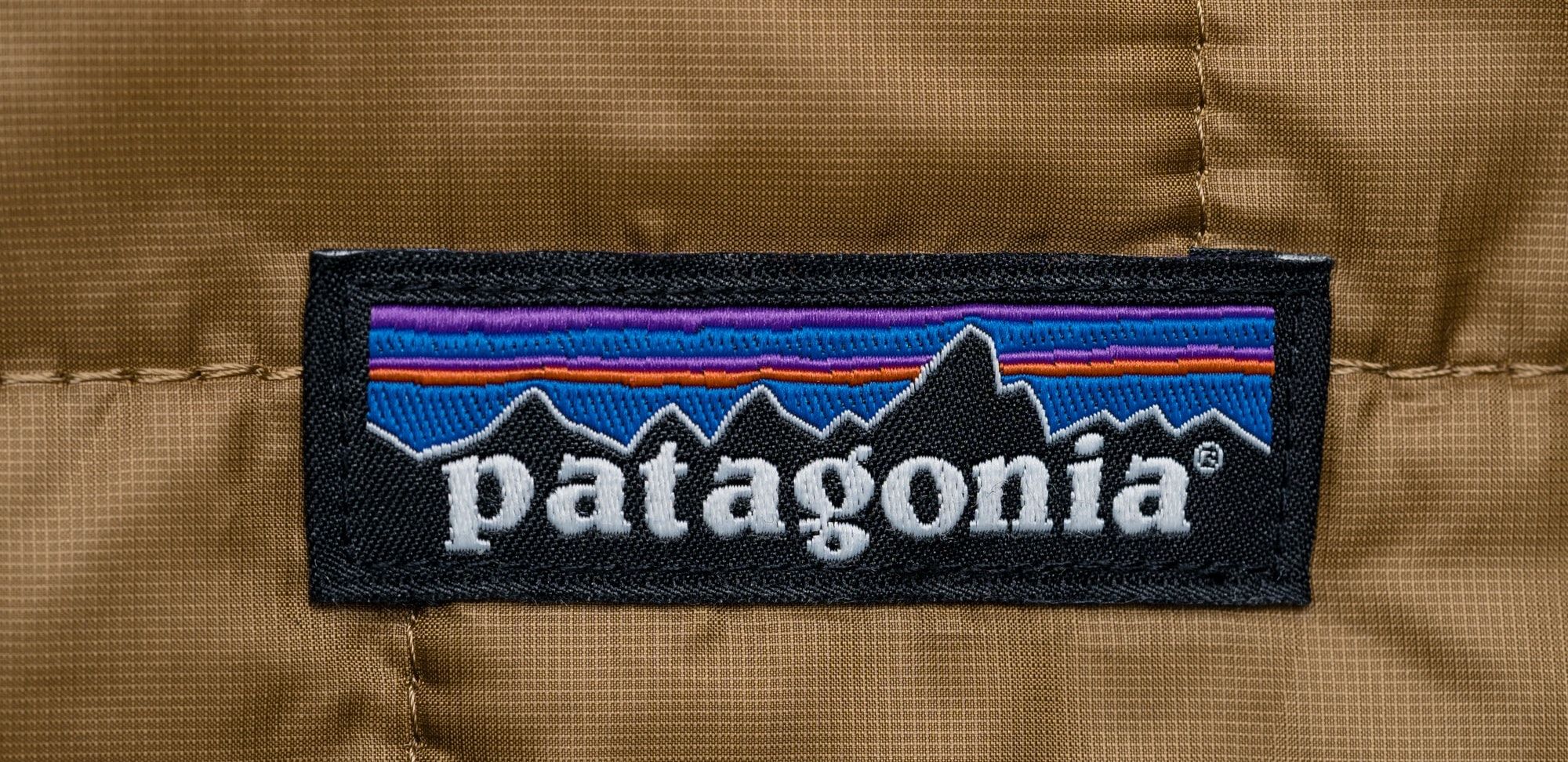
How does a self-styled 'dirtbag climber' become interested in clothing and fixing agriculture? It's a wind-y route, but one Chouinard lays out in his memoir/employee-handbook/business-book "Let my People Go Surfing: The Education of a Reluctant Businessman". The short version is that by spending so much time engaging with nature, Chouinard became aware of the intense environmental problems created by the way we live now.
"The Environment", or "Environmental problems", or "Environmentalism" are in my view terms that are victims of bad branding. Some of us have associated these words to crunchy hand-wringers who spend too much time sitting in trees or taking photo-ops pulling trash off of sea animals. And not enough time looking at the problems of the members of their own communities: disease, poverty, loneliness, etc. Chouinard makes it clear that these problems aren't so separate. Taking care of the environment is another way of saying: let's keep where we live clean. Let's lower the risk of cancer for our friends and families by keeping pesticides out of drinking water. Let's use less material now so that folks in other parts of the world won't go without later.
And it's clear that these considerations are first in Chouinard's mind when running Patagonia. The purpose of this company is to create solutions to these environmental problems. Not to make the customer happy. Not to grow. Not to be resold. Not to make the greatest profit possible.
By measure of Patagonia's goal, they've done extremely well, through efforts in funding small activist organizations, cleaning up their own resource usage, engaging in fair trade practices, encouraging conscientous use and re-use of their products and providing a healthier work environment for patagonia employees. And even by traditional measures such as length of time in business, profitability, they've been astonishingly successful as well. Indeed One of Chouinard's themes is that he often finds the beneficial actions other companies fear will be costly burdens prove to patagonia to create cost savings and boons.
What follows is meant to serve as a reference guide to Patagonia's principles and practices for myself. And it may serve as an extended summary for you.
History
About the first 1/3 of the book is a history of Yvon Chouinard's life and the beginnings of Patagonia. It's a fantastic story to which justice can't be done here. Still, it's worth noting a few things.
Chouinard came from a poor french canadian family. After the family migrated from New England to California, he took up risk sports like climbing and surfing (and some less risky ones like fly-fishing). He still does these. He and friends like Tom Frost took pride in doing things they felt explicitly provided no value to society. In keeping with that, Chouinard expresses a 'zen' or 'buddhist' mindset at times in the book. Of course, Patagonia's mission later became to provide lots of value to society, but we'll get to that.
From chouinard equipment to patagonia clothing
While climbing, Yvon felt the climbing tools available weren't up to snuff. So he taught himself blacksmithing and forged climbing pitons. These he started selling through mail order under the heading Chouinard Equipment Company.
The pitons became ubiquitous, and after a few years Chouinard realized that they were permanently degrading and damaging climbing routes. He opened his 1972 catalog with an essay describing the harms of pitons and suggesting a healthier alternative he and the company had developed. This was the beginning of a Chouinard company taking a notable stand for nature and for healthy surroundings.
From here, they eventually got into climbing clothing, repurposing rugby shirts to replace the less-durable button-downs commonly used. They changed the name of the company to Patagonia and began to learn and focus more on clothing, eventually phasing out much of the climbing equipment altogether.
Turning points in the the 1990s
A particularly important turning point came in the early 1990s after some years of rapid growth. A crisis[1] provoked Chouinard to gather up the company board. An ecologist and member, Jerry Mander came up with a values statement. I'll do my best to sum up its points:
- Every decision considers the environment.
- Product quality is of supreme importance.
- Know our place in the community, hire people with our values.
- Growth and expansion are not values.
- 1% of sales or 10% of profits (whichever is greater) donated to environmental causes.
- All levels of the company are encouraged to be proactive on values, even to include activism
- Top management will have maximum transparency and an open book to all employees on company decisions.
Following that, Patagonia grew more slowly and sustainably, yet diversified into venture capital with Tin Shed Ventures and sustainable agriculture and food with Patagonia Provisions. By its own measures, of inspiring action it's been a greatly successful company. But by typical measures of profitability it has been quite successful as well.
This doesn't feature in the book, but the values and mission statement have been updated since then, during the tenure of CEO Rose Marcario. The mission statement now reads simply "We're in business to save our home planet."
Product Design Philosophy
A Patagonia product should be the best of its kind, or the best in class. That is, an alpine jacket and a rain jacket are both waterproof, but the alpine jacket should be the best alpine jacket.
Restraint, quality, and simplicity
Products should also be functional and amenable to alternate uses. Chouinard's favorite example is how early on he repurposed rugby shirts into the original Patagonia climbing shirts. Garments should also be easily repairable. The should be authentic and beautiful. Authentic meaning, for example, that rock climbing pants have to work well in a harness and resist abrasion. Beautiful meaning "art, not fashion".
The book quotes designer Dieter Rams on product philosophy: "Good design is as little design as possible." Making watertight the front zipper of a jacket removes the need for a flap. Along these lines: "don't compete, make your own game". The best designs are like fusion cooking, which is quick, as opposed to a new invention which can take 30 years.
Here's a measure for knowing if your product is the best: you define what makes it the best rather than asserting it's the best.
Good product design is supplemented by great customer service, in the tradition of L.L. Bean. That is, relatively easy access to a conversation with a human, preferably located where your customer is.
Get and stay curious
Patagonia has an environmental philosophy, which I'll discuss further on, but it infuses product design too. When you're making something, you have to look thoroughly at the impacts. For example: wool is useful, but sheep can be dipped in harmful pesticides. So you might have to dig to find more sustainably grown wool. Chouinard even goes so far as to suggest we can no longer clothe the world with natural fibers. So that means evaluating inputs for synthetics like rayon, and considering how long they last (so they stay out of the dump or recycler longer), and whether they can go longer without washing (frequent washing uses lots of water).
Production Philosophy
When it comes to manufacturing 'hard' goods and technology (as opposed to software or media), Chouinard observes you can do more faster now than even a few years ago because of CNC milling, 3D printing, and other modern prototyping techniques. This is on the order of saving months or even years.
Discovery is being a dirtbag
Where that fits is with product discovery:
"Coming in second, even with a superior product at a better price, is often no substitute for just plain being first. This doesn't mean we should be "chasing" trends or products. It applies more to "discovering" a new fabric or a new process. Again, the key word is discovery instead of inventing."
Discovery for Patagonia is still a bit different than how some might think of it. There's not a user persona, per se, as Patagonia never abandons it's core customer: the 'dirtbag climber'. For the same reason they can't do discovery in retail stores. They've got to talk to climbers (or surfers, other 'dirtbags'), even if those customers don't look like the most currently lucrative.
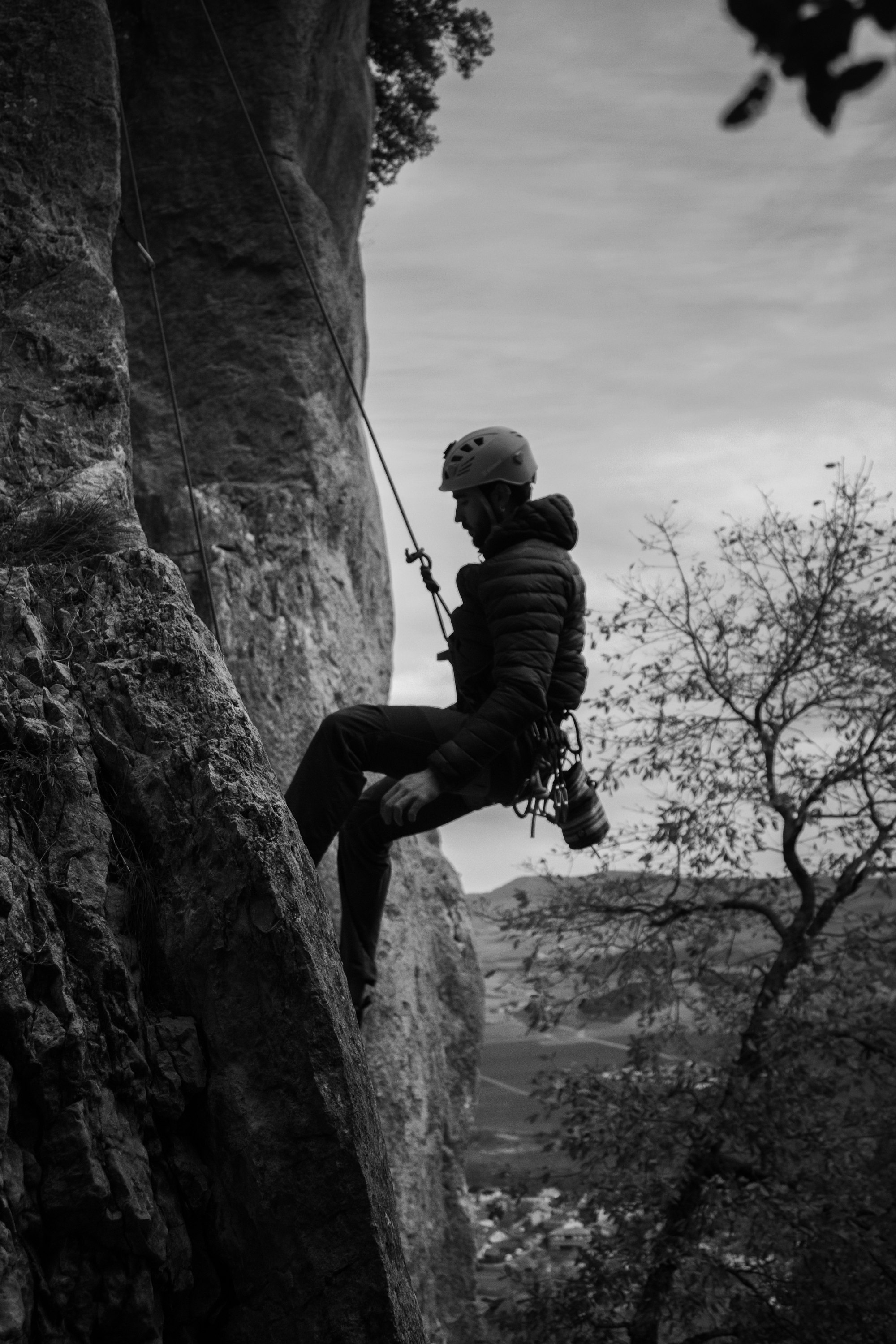
Quality and experimentation
With respect to trying out ideas:
"The entrepreneurial way is to immediately take a forward step and if that feels good, take another, if not step back. Learn by doing, it is a faster process."
Quality is the 'first among equals' of low-cost and on-time delivery[2]. Before production, you can do some tests for quality, like living with the fabric and climbing in it. The old saw "measure twice cut once" ought to be extended even as far back as inspecting the machinery in a partner factory (or if you're as big as Patagonia has gotten, trusting a third party certifier to do it for you). Form long-term relationships with those partner factories and contractors, and be ready to talk to lower levels: that is, the machinist rather than the engineer. Keeping with Chouinard's environmental focus, those relationships form an ecosystem.
Distribution Philosophy
You can hedge in a recession by having multiple channels: wholesale might go down, but direct up. Or by doing business in different markets across the world.
There are four main channels at Patagonia:
- mail order
- e-commerce
- retail
- wholesale
Mail order
Mail order was the first channel for Chouinard Equipment and Patagonia, and it's still got a special significance. The catalog is used to showcase philosophy and story as much as clothing products (recall the clean climbing essay opening the 70s Chouinard catalog). It enhances the other channels. Customers assume that mail order means you have the product on hand. Lessons from L.L. Bean show you ought to aim for 93-95% fulfillment. Higher means an out-of-control inventory.
The catalog is not a place for a square-inch by square-inch photo and copy optimization. Patagonia doesn't demote less profitable items, or focus group, nor do they appeal to vanity, greed, guilt with copy.
E-commerce
This follows the principles of mail order, but it can be more reactive, allowing things like asking customers to sign a petition, or personalized/regionalized emails.
Retail
When Patagonia started, delaers didn't know anything about visual merchanising, with Patagonia underwear loose with other items in boxes on floors. So Patagonia had to open their own retail locations. Their first was in San Francisco and they moved on to other outdoor hubs like Chamonix France, and Seattle. A little market analysis allowed them not to undercut dealer partners.
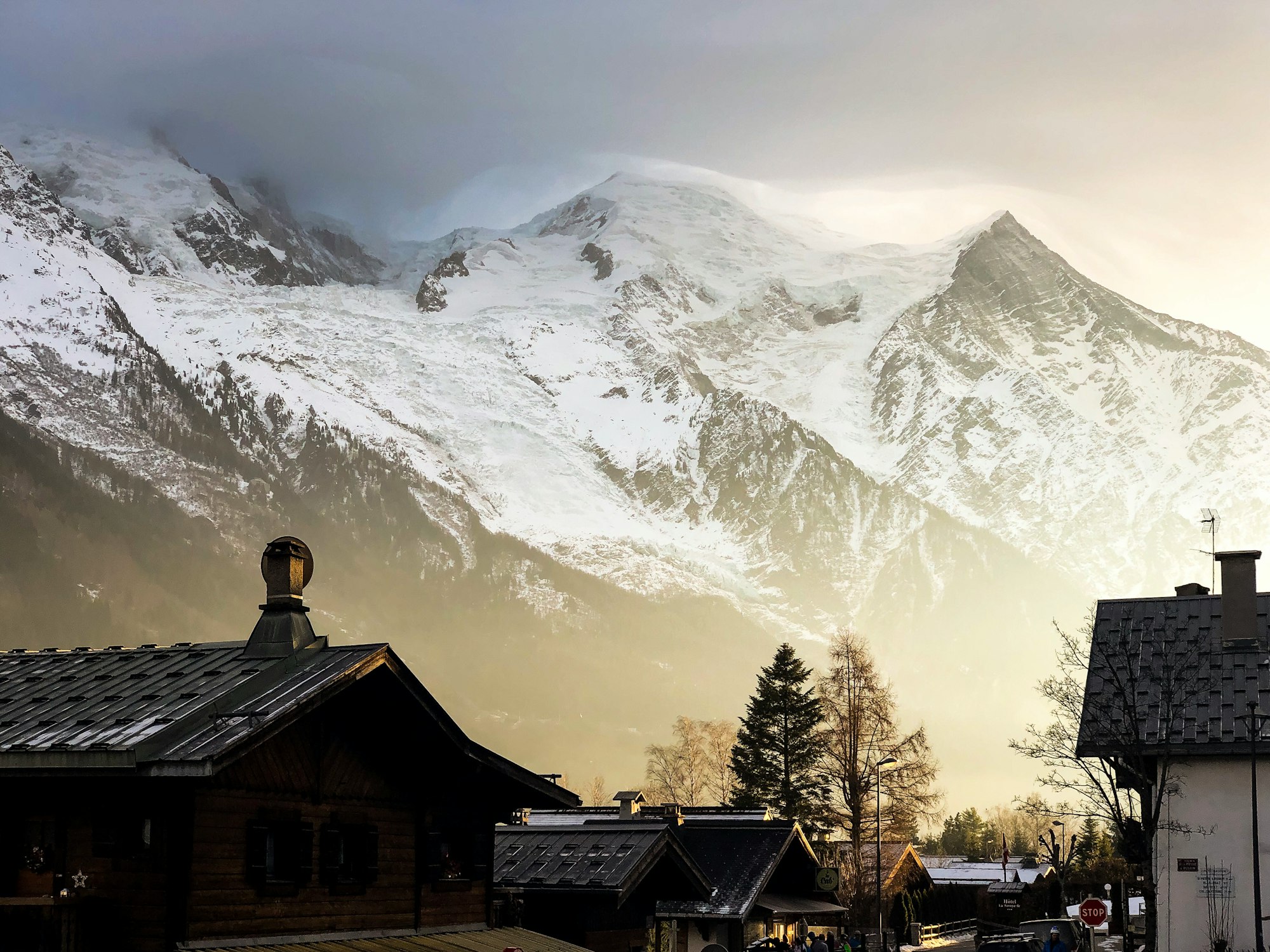
For retail shops, there can be a tendency to use the shop as a store room. That's no good. Instead, employee good buyers who are in touch with the customers, and who place frequent orders and turn inventory quickly. Keep the stock in the basement or a nearby stockroom.
Wholesale
The partnership-ecosystem mindset is useful again here. You can avoid continually searching for dealer partners, avoid credit risks and legal problems by developing long term relationships[3]. To put them on firm footing, seek to be in the top 20-25% of their sales or top 1-2 vendors in their shop. But there ought not to be a canned merchanidising program for all dealers.
At this point, Chouinard recalls a talk he gave about the decline of small dealers. The town climbing shop or fly-fishing spot. They served as places to swap stories and learn new techniques. But they were overtaken on the one hand by sporting shops like REI which can't be as specialized. And on the other hand by department stores that don't let a dirtbagger do a targeted shopping trip. Further, by my view, those were in turn consumed in part by Amazon.
Chouinard offers no fix for this. I'm left wondering how it is that bike shops escaped the fate of the kayak shop. Maybe it's because biking is everywhere?
Marketing Philosophy
You create an image whether you intend to or not.
This is going back to the catalog again, the first vehicle for creating that image through storytelling. Chouinard cites a chevron campaign called "we agree" as fake. At present he might call out Uber's performative anti-racism or other greenwashing and wokewashing.
Writing
Copywriting serves two purposes: one, to tell personal stories, and two, to sell or describe. It should stick to the facts, and be written as though the writer is the customer (because at Patagonia, employees are most often dirtbaggers/customers). Stories can take a stand and provoke[4].
Patagonia has even gotten into book publishing, following a tradition of Chouinard's own book Climbing Ice which simultaneously introduced the sport to many, and also helped sell gear. There's something to be said for a culture that encourages long-form writing in addition to simple copy (Stripe Press, from fintech company Stripe, is another example).
Images and promotion
Photos also tell a story. The company switched from simple photos of their gear to showing "Patagoniacs" and adjacent photos long ago. Examples include climbers scaling cliffs, or a turtle chewing up someone's patagonia jacket at a campsite, or a skiier who just wiped out. What they don't show are things like mountaineers planting flags or pale tourists.
In any case, promotion should stick to these guidelines:
- Our charter is to enspire and education rather than promote.
- We would rather earn credibility than buy it. The best resources for us are word-of-mouth recommendations from a friend or favorable comments from the press.
- We advertise only as a last resort and usually in sport-specific magazines.
Credibility
One of the ways Patagonia earns that credibility is by giving discouts to pros like rescue workers or mountain guides. They also sponsor some pro mountaineers, but not in an 'affiliate' sense (such as by counting how many magazine covers the sponsee gets). They take an aggressive PR strategy, but not with kits or tradeshow parties. Instead they make sure to have good stories, like taking a strong stand on a contemporary issue.
Financial Philosophy
"Who are businesses really responsible to? Their customers? Shareholders? Employees? We would argue that it’s none of the above. Fundamentally, businesses are responsible to the resource base. Without a healthy environment there are no shareholders, no employees, no customers, and no business."
It's notable to me that Patagonia uses the word “responsible “rather than the word “accountable “. “Accountable" smacks to me of interest in a person getting consequences, whereas “responsible" suggests addressing something that needs to be addressed, consequences be damned.
Quality makes finance easier
Patagonia is a product company not a service company. And more so, the company is not the product (as with many preparing for acquisition). The fact that Patagonia is privately held enables this to a large extent. Profits happen when you do things right: ideally they are a reflection of customer satisfaction with the product. The strategic planning institute publishes a PIMS (profit impact of market strategy). It found that quality, not price, has the highest correlation with business success. A sale to a loyal customer is worth 6 to 8 times more than a sale to another customer. Returns are very costly to process and most customers don’t tell you what’s wrong, they just leave.
On growth
The finance department shouldn’t “wag the dog “of the rest of the company. Growth should happen at a natural rate, a couple of percent each year. Let the customer tell you they wish you had more inventory. Patagonia doesn’t try to grow by advertising in cities like Timberland or the North face does. Aim for being debt-free or having cash on hand to be able to invest and face down turns. Do budgets on a shorter time scale than six months like Japanese companies.
When it comes to tax Patagonia standards to pay their fair share and not a cent more. They rely on the CFO to choose accounting techniques that are the most accurate not the most likely to reduce tax.
Patagonia has a B corp certification and is a California public benefit corporation. B corp status means that a Patagonia were ever sold, a change to their values and articles of incorporation require a 100% vote of shareholders.
Human Resources Philosophy
For Patagonia, working is for instrumental utility: making money to provide for the other parts of life. It should be fun and pleasurable. Chouinard would like employees to see Patagonia not as a step, but as an end in itself. Thinking like a customer is easy for Patagonia workers, because those workers are so often customers
Culture
Employees have diverse beliefs, and they need not share all values, but shouldn't mind them and Patagonia is welcoming to people who want to act on them. Jobs and hiring are often through friends and family. There are many applications for each position, so Patagonia takes its time with hiring. An interview will include the future manager, future colleagues, and more. Bias toward training a climber in business; it's harder to get an MBA excited about climbing. Because of that bias, employees end up with diverse backgrounds like journalists and ex-lawyers. Chouinard says Patagonia is still figuring out how to promote from within for C-level positions, but very recently, they've gotten closer by hiring Ryan Gellert, who's been at Patagonia for a while and previously was at Black Diamond Equipment (itself a rebirth or branch from the original Chouinard Equipment business).
Let my people go surfing
The Patagonia flextime policy is the source for the book's title. "Let My People Go Surfing" means that you trust people enough that they can catch a wave when the surfing's good, not at 2pm next week. It applies to things like going to meet your kids at the school bus too. For younger kids, there's onsite daycare for market rates. They program takes special care to have better than average staff to student ratios and thorough vetting. It's also multilingual and encourages parent visits, breastfeeding, and other bonding during the workday. The spirit is "let the village raise 'em". Parental leave is 12 paid + 4 unpaid weeks for moms, and 12 weeks for dads. A practical goal of these benefits is cost savings in employee retention. Patagonia is 58% women and it takes 20% of a person's salary to hire their replacement.
There's organic food at an onsite cafeteria, showers on site (for people active during the day), and employee discounts. Health insurance is available even to part timers which has the benefit of attracting climbers to work in retail stores[5].
Patagonia's benefits are notable in that, while they enable employees to more easily be at work, they don't seem intended to keep them at work. Contrast to Google's famous perks, which include every meal, on-site massage therapists, recreational facilities, etc.
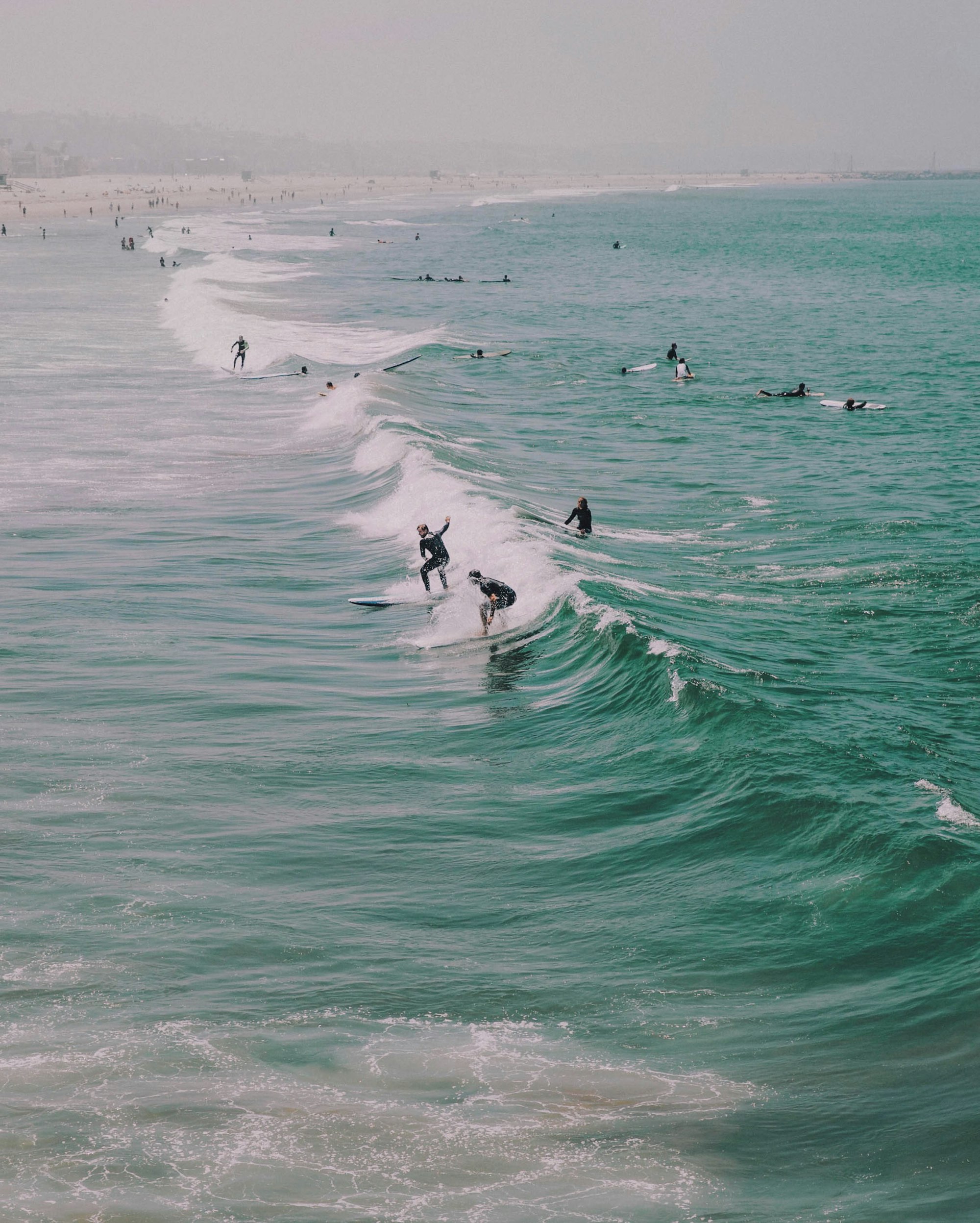
Management Philosophy
Chouinard suggests "inventing" a crisis if there isn't one by issuing a challenge, providing this Teddy Roosevelt quote as his rationale:
"In pleasant peace and security, how quickly the soul in a man begins to die."
It's also seen in Chouinard's take on evolution: it's not the strongest that survive but those most adaptable.
Makings of a manager
Certain characteristics are good to cultivate or witness in well-adjusted managers. Namely that they understand the value in the undertaking. Chouinard contrasts mountaineers who summit Everest without oxygen and assitance after practice and planning, and wealthy lawyers who get pulled up by sherpas while on oxygen. There was a study of CEOs that found some of the best had the common trait of working with their hands on things in their off hours- a trait that suggests a willingness to dig in to practical problems.
Cultivating culture
A manager (even an individual) ought to cultivate a practice similar to Toyota's Five Whys. The idea is to ask several successive questions to get to the heart of an issue. A Patagonia example involves a period of poor jacket sales one winter in Japan. Rather than assuming they overbought inventory, they asked "What are others' sales like". Others' sales were also down. Then they asked "Is our business down on other business lines?" It was. "Is this winter normal?" No, it was unseasonably warm. By asking a few questions, they decided to wait for a bit, and when it finally got cold sales picked up.
Consensus not compromise
A study of Patagonia employees showed they have a higher than normal amount of individualistic tendencies. That's good because it leads to more questioning. But they are encouaged to commit once a decision is taken. That's helped by consensus, rather than compromise. With the latter, both sides end up feeling cheated. Chouinard cites native american chiefs who got consensus based on bravery and oratory skill.
Managing should also cultivate high trust. This is exhibited for example in the flextime policy. If a few folks 'abuse' it, no one gets too bent out of shape. Chouinard, like his friend and North Face founder Doug Tompkins, advocates for a management style called "MBA: Management By Absence". What they really mean is that a manager should almost never be at the desk, but employees should be able to find the manager easily[6].
Setting an example is the way
Managers should also lead by example. Chouinard cites his proudest moment as the early 90s, when Patagonia switched to organic cotton in the middle of a crisis. Other examples are things like not having special parking spots, or displaying egalitarianism with an open office plan. The ideal capacity for a single location is about 100 people, any larger and there's too much bureaucracy. Chouinard likes the city of Ventura, or Auckland NZ because they are "right-sized" too. Team sizes should be about 4-7 for the best chance of success. That's according to A. Paul Hare's Creativity In Small Groups.
Environmental Philosophy
"At Patagonia the protection and preservation of the natural environment aren't just something we do after hours or when we finish our regular work; they're the reason we are in business."
Patagonia's environmental philosophy may not seem to reveal any special business knowledge. But that's a false impression, and demonstrating that is practically the point of the company. This aspect of Patagonia's philosophy is the one dearest to his heart. Not because he loves thinking about it, but because he wants to use his business to solve environmental problems, which turn out to be human problems. So it's worth examining this a bit. And while it may not at first be obvious what the "management" or "business" lessons are in this philosophy, I think Chouinard would insist that this lack of obviousness is a problem for most business.
Chouinard is a pessimist about the future, but also claims to be "buddhist about it". This sounds kind of like what is contemporarily called "doomer optimism", an oscillation between seeing things as hopeless and going on as if you can help make them better anyway. Action is the cure for depression. Chouinard takes a page from E.O. Wilson, suggesting we are currently at nature's last stand. He acts as if evil is stronger than good, yet is inspired by the 7-generation planning of the Iroquois.
"A successful, long-lived, and productive company like Patagonia could be compared, on themost basic level, witha healthy environment, simply in the fact that both are composed of various elements thtat must functiontogether in some kind of balance in order for the whole system to work...No businessman in his right mind would, for example, intentionally cripple his accounting department without thought of the consequences to the rest of the company. Yet that's exactly what's being done to the environment; entire ecosystems are being destroyed or "converted" without consideration to the overall health of the planet."
Government and business don't use 'full-cost accounting', accounting that takes into account measures beside GDP like availability of clean air or ocean temperature. If they did, they'd find that the economic benefits of intact nature (climate regulation, soil formation, fuel, food, fiber, etc.) outstrip exploitation on the order of 100 to 1. A theme in Chouinard's thinking is that the government subsidizes destruction, whether it's in oil for SUVs, the logging/homebuilding industry (Europeans often get by without wood buildings), or farm legislation that promotes corn and soy monocropping.
The summary environmental philosophy is:
- Lead an examined life.
- Clean up your own act.
- Do our penance.
- Support civil democracy
- Do good.
- Influence other companies.
A word about farming and food
Chouinard has some particular ire for industrial agriculture. Two bushels of topsoil are used in growing one bushel of corn in the midwest. And in the pacific northwest, forests are planted as monocropping. Nature doesn't like a monoculture. He learned about sustainability in his own garden, creating soil from scratch. This kind of experience is what may be antidote to industrial-scale ag. It's the kind of thing layed out by Masanobu Fukuoaka in a book called The One Straw Revolution. In it Fukuoka describes sustainable, high-yielding methods that don't disturb soil or use chemicals. It remains a classic reference for small-scale farmers today.
Lead an examined life
One of the hardest things for a company to do is look at the environmental consequences of a product and pull it if it's harmful. There's worry about putting people out of work or impacting financial goals. This is where two things previously mentioned return: being privately held and the Five Whys. Being privately held allows the company more flexibility. And asking the five whys goes deep into whether the product is causing harms. A companion to the five whys, looking forward is the precautionary principle, generally poorly-applied in the US.
Chouinard brings up rising cancer rates in young people, telling the story of his surfer friend, Rell Sun, who died in her early forties from cancer. There was a cluster of cancer victims from her childhood neighborhood where kids played on the back of mosquito pesticide trucks. Now pharmaceutical companies want to look for cancer pills more than at causes like this.
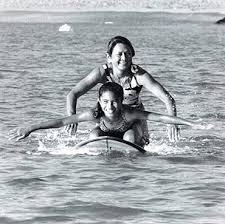
Clean up our own act
Non-organic cotton farming takes a lot of chemical input. But even an organic shirt takes 700 gallons of water to make. Does that water come from a dammed river? Does it interrupt fish migration or livelihoods? This is the kind of probing that Patagonia does to clean things up. It's the kind that led to them finding and stopping human trafficking in a partner fabric mill. As Patagonia has gotten larger and the investigative work more complex, they've worked with third-party certifiers to do this kind of investigation.
Just as Patagonia managers lead employees by example, the whole company ought to lead other companies by example. Solar in the parking lot is a small way they do this, even though it's costly up front. Another is by on-site recycling programs like using old printer paper in they daycare's changing tables. Maybe more substantially, in their 'internship' program which gives employees a few months pay to work in environmental organizations. There are even some circumstances where Patagonia will pay bail for employees who are arrested doing activism (if they took a short Patagonia activism class prior).
There are small one-offs too, like where several Nevada employees asked for salary and a desk to work on protecting federal land, succeeding with a large portion of the Black Rock Desert[7].
Do our penance
Chouinard takes environmental responisbility so seriously he uses the word 'sin' for previous harms by Patagonia that require making up for. One story describes an attempt. Patagonia helped natives of the Kitlope in Northwest Canada to save some of their land from extractive logging.
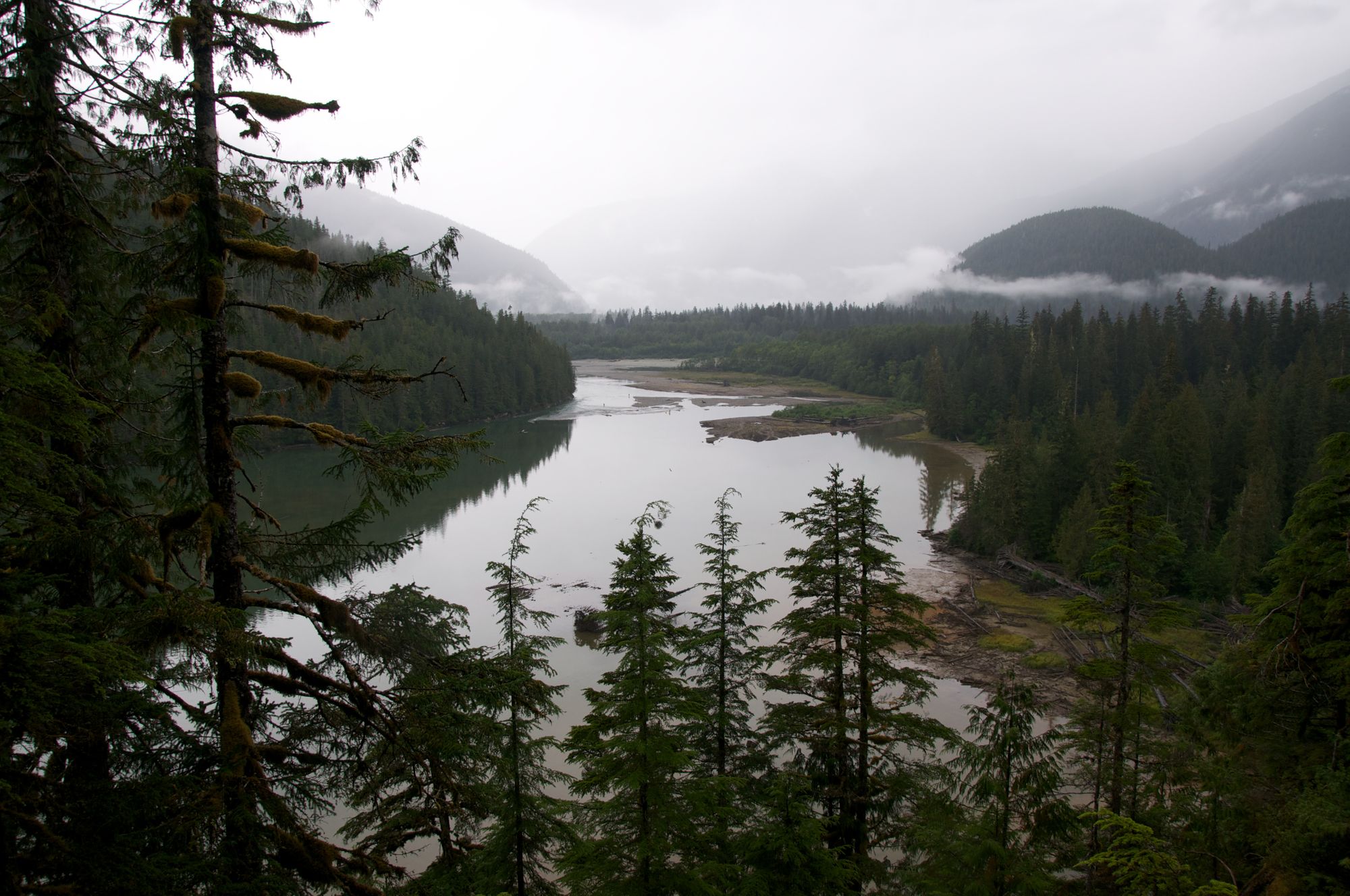
Patagonia had a turning point in their donations to activits in switching from giving 10% of profits to 1% of sales. By giving from sales, their support is less conditional. It's not charity, but an "earth tax". The company tends to spread out giving to many small organizations rather than large NGOs (even here again: nature doesn't like a monoculture).
Support civil democracy
"Democracy works best in small, homogenous societies where everyone has to take responsibility for his or her actions."
The company takes inspiration from the activists that broke away from the UK to form the US. And further the women and abolitionists who refined democracy in the US. Too, naturalists like John Muir who convinced Theodore Roosevelt to create Yosemite by taking him camping among redwoods. Or the falconers and duck hunters who have done the most to help waterfowl.
Between 1985 and 2016 Patagonia gave $79 million in cash and in-kind donations to activist causes. Chouinard has a telling take on "activism":
"People may be afraid of the term "activist" because the associate it with ecosabotage and violent protests, but I'm talking about normal citizens who want the government to live up to its obligation to protect our air, water, and all other natural resources."
Do good
Chouinard continues the farm theme here, elaborating on the troubles caused by industrial agriculture. In summary, modern techniques like monocropping, tilling, pesticides, and genetic engineering are responsible for lots of carbon in the air, poisoning water, and for displacing small farmers. A startling and concrete example: the pesticide atrizine is found in 94% of US drinking water. At one point Chouinard calls for finding ways to harm stocks of industrial ag companies.
But restoration of soil is possible, and maybe sooner than expected. A global switch to renerative land husbandry (by some estimates) would completely sequester all our carbon emissions[8].
Patagonia and Chouinard feel so strongly that good agriculture is key to environmental health, that they've started another division, Patagonia Provisions, which aims to use and promote sustainable farming. This includes fishing using native american netting techniques, bison farming that regenerates prairie, and working with the Land Institute of Kansas, whose nearly half-century mission has been to re-discover and breed perennial grain crops like Kernza and other wheatgrass.
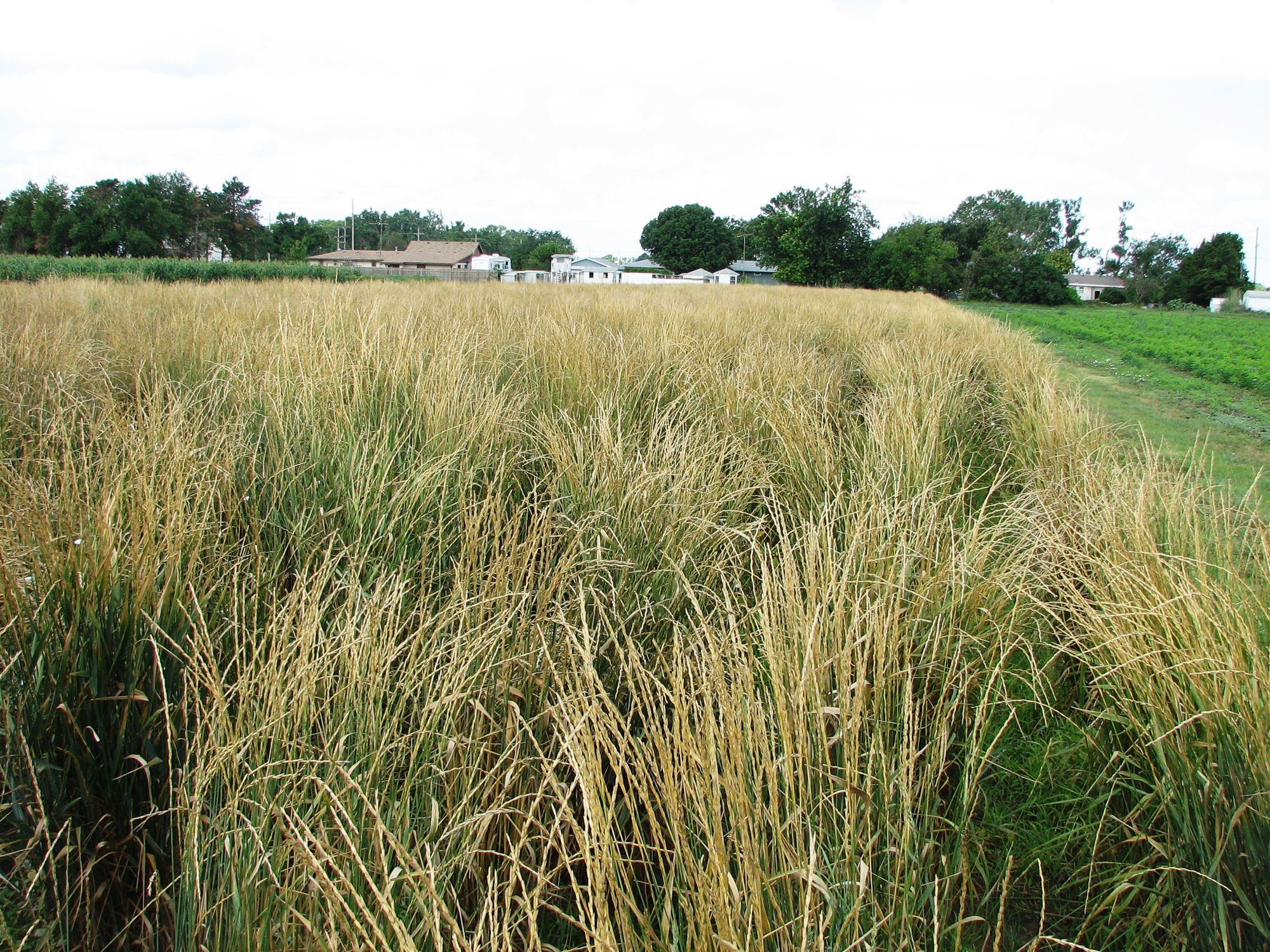
Influence other companies
Through the book, Chouinard talks about influencing other companies by example. But in this latter part, he turns his focus on growing like-minded companies:
"It is really the small private businesses we hope to influence. It is the tens of thousands of young people who dream of owning their small farm someday."
Backing this proposition up, Patagonia created yet another division, Tin Shed Ventures. It's a venture capital fund devoted to 'the next generation of sustainable businesses'. In contrast to legacy foundations, it's not necessarily concerned with growing and keeping an endowment, but rather to find solutions quickly, and to diversify ("nature hates a monocrop" again!).
Chouinard is under no delusion about companies doing what they need to do without regulation. But here's his words to organizations on the precipice of doing right:
"The scariest moment is writing that first check. But you know what? The next day things go on: the phone still rings, there's food on the table, and the world is a little bit better."
Patagonia's Closing Argument
In an inversion of Ghandi's "be the change you wish to see in the world", Chouinard suggests to his readers and employees: "we are the guilty ones" when we are able to take action and don't. That includes things like not changing our comsumption patterns to be more simple.
At the corporate level, most companies don't act like they're stewards of resources. Instead the predominant model for decades has been unceasing growth followed by a cash-out. This disrupts family ties, local economies, and of course the environment.
Complacency is one of the biggest challenges:
"Our current landscape is filled with complacency, be it in the corporate world or on the environmental front. Only on the fringes of an ecosystem, those outer rings, do evolution and adaptation occur at a furious pace; the innter center of the system is where the entrenhed, nonadapting species die off, doomed to failure by maintaining the status quo. Businesses go through the same cycle."
At the individual level, Chouinard admits there are concerns with degrowth and lessening consumption. Namely that some people could lose work in the traditional sense. However, he believes that there's always work for a skilled craftsperson, like someone who spends a week on a fly fishing rod that will last a lifetime, small farmers with organics, or his friends who restore vintage wooden surf boards. In some ways, generalist knowledge of crafting can be a substitute for possessing material goods: "the more you know, the less you need."
A core distillation of the Chouinard and Patagonia ethos:
"It seems to me, if there is an answer, it lies in these words: restraint, quality, and simplicity...From my feeble attempts at simplifying my own life, I've learned enough to know that should we have to, or choose to live more simply, it won't be an impoverished life, but one richer in all the ways that really matter."
Notes
1They faced a 'sales crunch' - the growth they'd planned for and bought inventory for didn't happen by as much as they thought. A "mere" 20% rather than their planned 30-50%. They'd tried 8 different product divisions with "product czars", and hired an external CEO. After the 'come-to-Jesus' moment, they brought back their long-time manager Kris McDivitt, cut the external CEO, and consolidated these divisions, among other measures
2There's a story of Patagonia's attempt to do business in Japan, where U.S. businesses have traditionally needed to go through intermediaries to make things work. Chouinard recounts how a Japanese customer may go through an entire stack of medium shirts of the same color, examining stitches on each to get the best one.
3 To extend the list of benefits to the wholesaler:
- We don't have to expend the effort, time, and money to seek out new dealers.
- We limit our credit risks.
- We minimize the legal problems associated with cutting off a dealer whose bad service is a reflection on us.
- We develop loyal buyers who make a commitment to the line and either carry a broad representation of the line or, in the case of a small specialty shop, in-depth inventory.
- We maintain better control over our product and image.
- We receive better information about the market and our products.
And to the dealer:
- A product line that sells year after year.
- Protection from market saturation.
- A stable pricing structure.
- Expertise from us in buying, merchandising, and displaying our products.
- Being part of Patagonia's synergistic marketing and distribution program.
4Chouinard might get along with David Heinemeyer Hannson and Jason Fried, who suggest taking strong stands in their book ReWork. Many examples found on their blog signal v. noise.
5Another notable company that does this is Starbucks. It's not clear to me if Starbucks has a practical benefit like attracting climbers. Maybe to attract students to work there?
6Here's a contrast: Andy Grove, a famous manager of Intel corporation and Silicon Valley idol, opens his book High Output Management with exuberance about email's introduction into offices in the 80s and 90s, a tool that probably means managers will spend more time at their desks. Grove suggests that a big part of a manager's job is information dissemination; email saves them time by letting them broadcast. Contrast to this Chouinard quote: "In this information age, it's tempting for managers to manage from their desks, staring at their computer screens and sending out instructions, instead of managing by walking around and talking to people."
7Perhaps not coincidentally the location of Burning Man?
8My concurrent reading of farmer and sociologist Chris Smaje's A Small Farm Future reveals Smaje has some skepticism about 1) the viability of 'regenerative' farming, 2) the ability of farming, or at least soil, to sequester carbon. However there's complete agreement that we'd be better to support a society with orders of magnitude more small farms.

